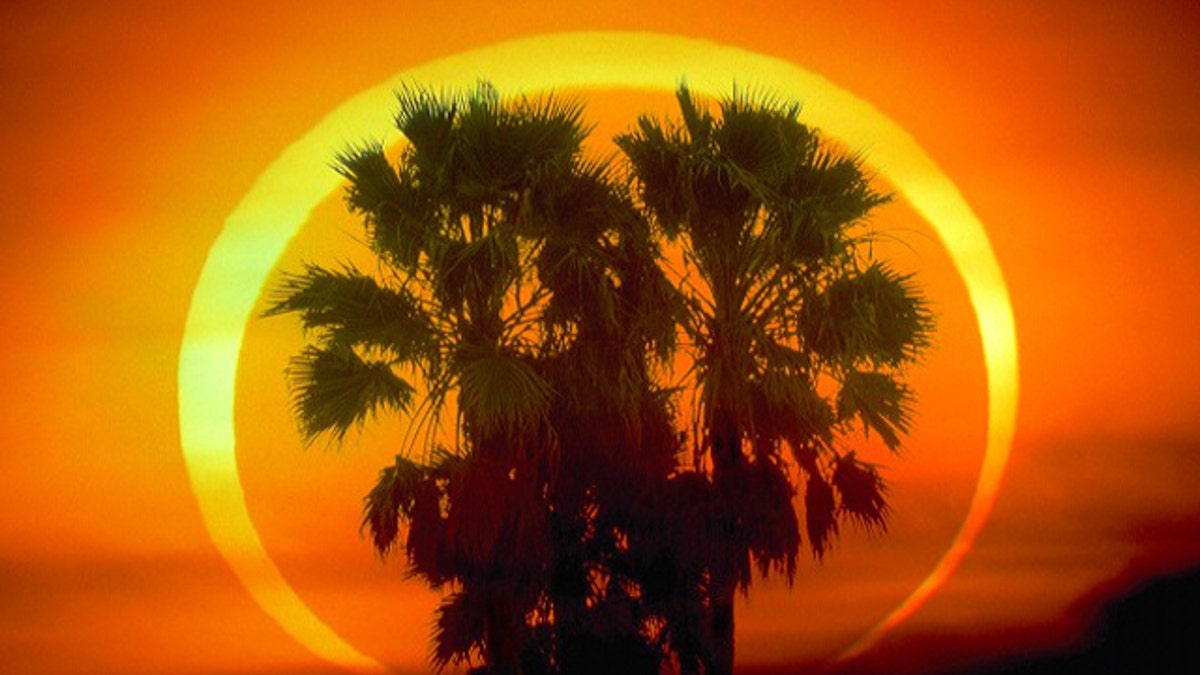
A spectacular annular eclipse photographed behind palm trees in 1992. On Friday, India launched a floatila of rockets to see how today's eclipse affected the Earth's atmosphere. (NASA/Dennis Mammana)
India has launched a fleet of small suborbital rockets to study the effects of a stunning Friday solar eclipse -- touted as the longest this millennium -- on Earth's atmosphere.
The India Space Research Organisation (ISRO) launched 11 sounding rockets in two days to study the partial annular solar eclipse, which dominated the sky above southeastern Asia and Central Africa today. Thousands of skywatchers in countries where the eclipse was visible marveled at the celestial event.
But only India appears to have launched rockets to see how the drop in sunlight as moon blocked part of the sun affected the Earth's atmosphere.
"The eclipse was well visible in southern parts of the country," ISRO officials said in a statement. The eclipse began in the morning (local time) and hit its peak at about 1:15 p.m. local time in India.
India's Vikram Sarabhai Space Centre launched the Rohini sounding rockets from several sites, including the Satish Dhawan Space Centre in Sriharikota. The rockets were launched in waves, with five launching on Thursday to collect pre-eclipse data while six more blasted off today to compare the after effects.
"All the sounding rocket launches were conducted to study the effects of the annular solar eclipse on the atmospheric structure and dynamics," ISRO officials said.
The eclipse, which partially blotted out the sun to leave only a bright ring visible at its height, offered a unique opportunity to study how such events impact the photochemistry and electrodynamics within Earth's atmosphere, project researchers said. In addition to a drop in sunlight, lower temperatures and decreased levels of ionization within the atmosphere can be observed, they added.
Copyright © 2010 Space.com. All Rights Reserved. This material may not be published, broadcast, rewritten or redistributed.








































